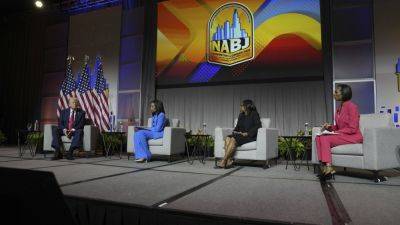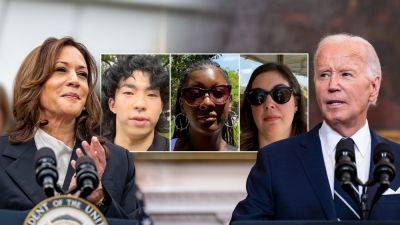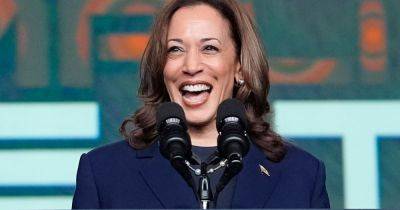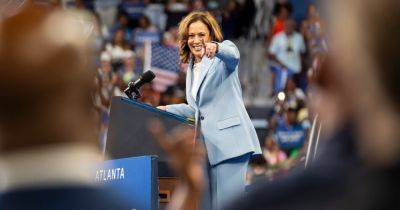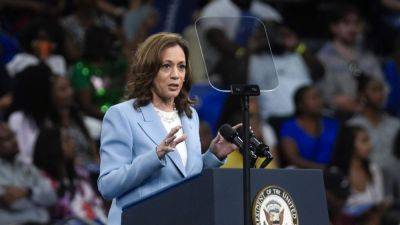Harris tries out a new role: consoler-in-chief
HOUSTON — Vice President Harris delivered a eulogy on Thursday in Houston for Rep. Sheila Jackson Lee, a lawmaker she remembered as a friend and a "force of nature" who worked for justice in her community and country.
The remarks also gave some insight into how Harris would handle the important role that presidents play in times of national trauma and personal grief: consoler-in-chief.
Campaigns normally test candidates' abilities to stir rally crowds or debate their opponents. But in an election year, every speech is an audition.
In her compressed campaign, which launched less than two weeks ago, Harris has focused on portraying herself as a fearless prosecutor. The eulogy tested her comfort level with showing a more personal side, as well as with giving a type of address more traditionally delivered by a male leader.
"A few days before she passed, I called her," Harris said at the service. "I expressed my sincere and deep gratitude for all she had done. And I told her she had such an impact on me and my life."
"She could be tough, but oh my goodness, she was so loving, and so encouraging," she said.
The role of a consoler-in-chief
In America's worst moments, it is the president's job to bring meaning to the sadness. Perhaps the most memorable modern example is then-President Barack Obama's 2015 eulogy after the mass shooting at Mother Emanuel AME, a Black church in Charleston, S.C., when he led mourners in "Amazing Grace."
The most effective eulogies end with a note of hope, pointing a way forward, says Terry Szuplat, who was a speechwriter for Obama — including of the address he delivered in response to the Boston Marathon bombing.
"Even now, all these years later, these are the sorts of speeches that people come up


